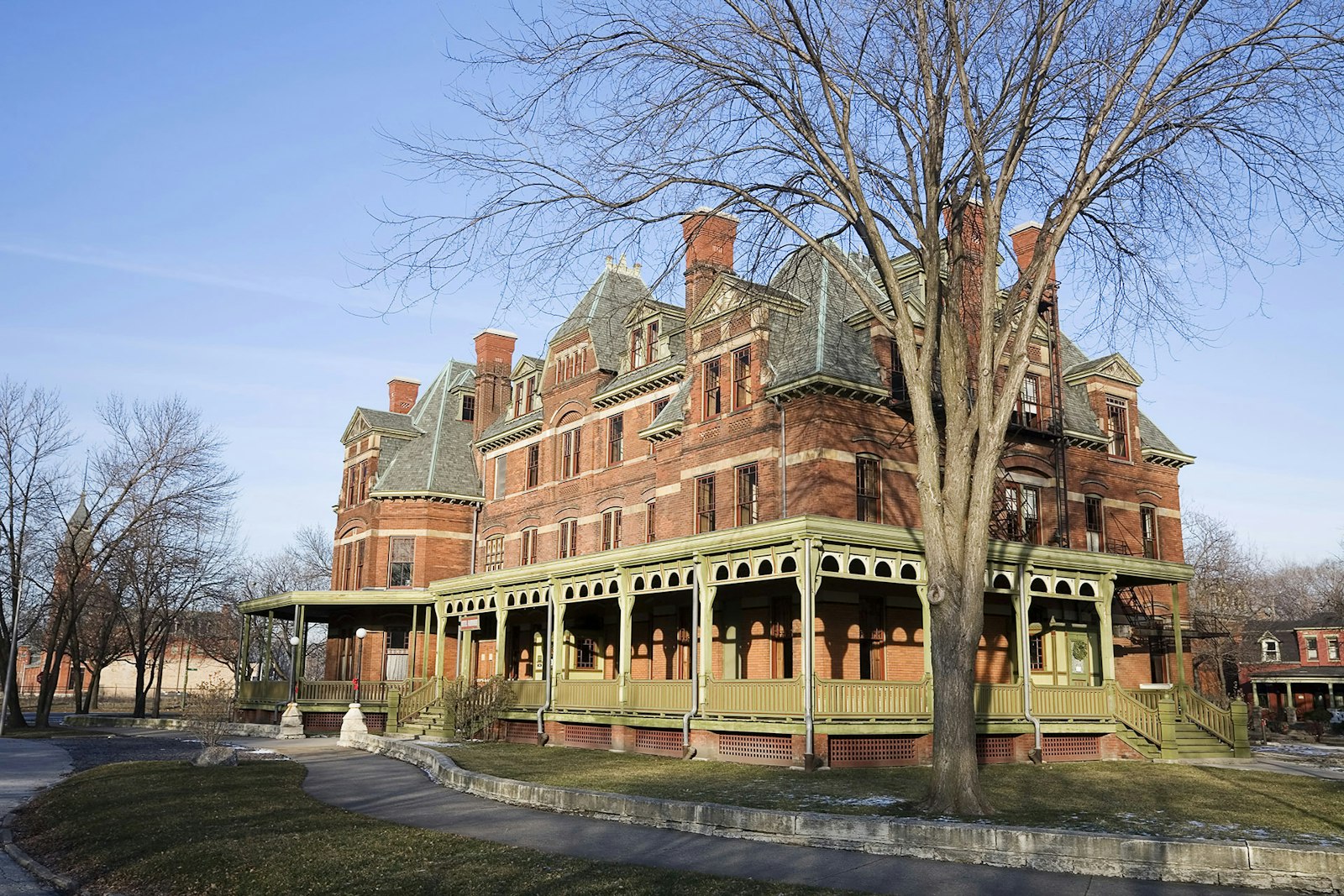
Pullman National Historical Park
Designated in 2015, Pullman National National Historical Park is the first National Park Service unit in Chicago. Preserving the story of one of the first planned industrial communities in the United States, the park includes many historic buildings located in what is now the Pullman neighborhood of Chicago.
The National Park Foundation (NPF) has long supported the park, providing a total of $10 million to support the construction of its new visitor center and revitalization of the site. The visitor center, located in the iconic Pullman Administration Clock Tower Building, features audio and visual exhibits that explore the story and legacy of the local labor and civil rights history. With partners, NPF’s support is making improvements to the 12-acre grounds and historic buildings. Additionally, NPF has worked alongside the Historic Pullman Foundation as it builds its organizational capacity, supporting its journey to becoming the park’s official nonprofit partner.
In 1880, the Pullman Palace Car Company broke ground on its own industrial community, consisting of factories and infrastructure, including streets, a town, and housing for its workers. By 1883, over 8,000 workers lived in Pullman. Over the next decade, orders declined and wages were cut, but rent charged for company housing was not. Soon workers were left with starvation wages as corporate dividends remained undisturbed. A strike broke out in May 1894 and factory workers walked out after failed negotiations for better wages and living conditions. This led to a national boycott of handling Pullman cars, drastically affecting rail traffic across the country, and violence and vandalism broke out as soldiers were dispatched to aid local authorities. The strike was eventually quelled by an injunction from the Supreme Court, but its effects were far-reaching.
In 1925, A. Phillip Randolph founded the Brotherhood of Sleeping Car Porters (BSCP), the first African American labor union. At the time, porters made up 44% of the Pullman workforce, making it the nation’s largest employer of African Americans. BSCP advocated for an improvement of working conditions and treatment of African American railroad porters and maids. In 1937, BSCP and the Pullman Company reached a landmark agreement, an important step for African American civil rights.
Park Updates
-
UpdateNPF Invests in Park Partner Organizations to Further Capacity-Building Goals
-
UpdateOnward
-
UpdateShowcasing Significant Archeological Discoveries at Pullman
-
UpdateNPF and Union Pacific Railroad Unveil New Mural Near Pullman National Historical Park
-
UpdateStrengthening Park Partners
-
UpdateReflecting on a Year of Achievements in Our National Parks
-
UpdateAmerica at Work: Labor History in Our National Parks
-
UpdateEvery Day is Earth Day
-
UpdateUncovering the Untold Stories of Our National Parks